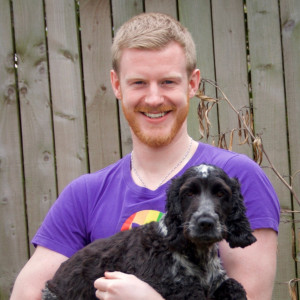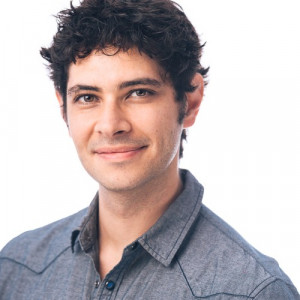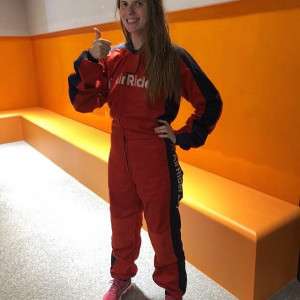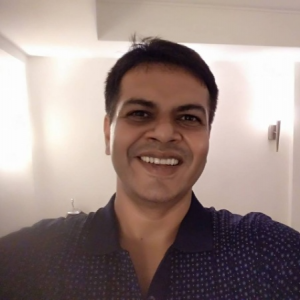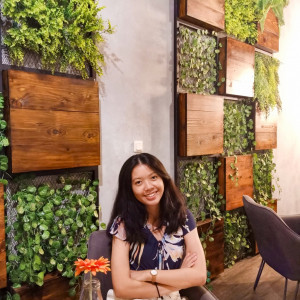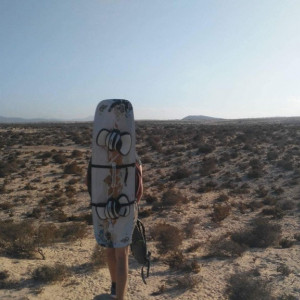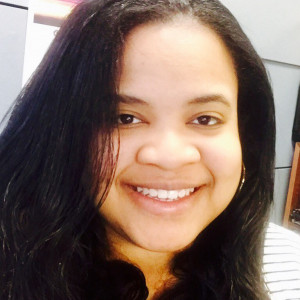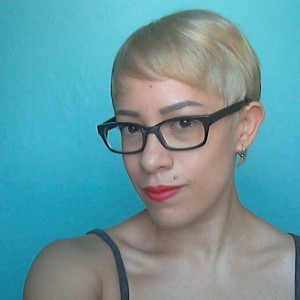How has your routine changed over time?
Interview with Mike, a software engineer who works remotely at GitHub
I try to spend more time during my day dedicated to exercise than I used to.
I find that it has paid massive dividends in terms of mental health, physical health and productivity.
I've removed my work email and chat applications from my mobile phone and log out of them at the end of my work day (unless I'm on call).
This helps a lot with work/life separation and balance.
Mike got started with remote work after getting an offer from his dream organisation. Learn how he works remotely while working on open source projects and publishing books.
Read full interview from Interview with Mike, a software engineer who works remotely at GitHub.
Interview with Kevin, a developer and remote consultant
In 2009-2012, I backpacked and worked. Working out of coworking spaces was wonderful then, since it helped me network and meet people and also provided the essentials I needed, like quiet phone areas and fast internet.
In 2014-2016, I worked out of my apartment (that I lived in alone) in Brooklyn.
My first six months, I was siloed on a greenfield project by myself. I loved it - I routinely spent 12+ hours a day crafting my baby.
This inevitably came to an end. As I (reluctantly) started taking on managerial duties, it became harder to stay focused at home.
In 2016, I quit my job and my girlfriend moved in. I got a private office about 15 minutes away. That was really wonderful; I had a door that closed so I could be loud but also had a (small) community. The commute was also wonderful, biking through a park along the water with a view of the Manhattan skyline in the background.
I'm now living in Boston and working out of a shared coworking space, and I really enjoy the community here. I miss having a dedicated desk, but I think the community outweighs that.
Kevin is a developer and consultant working on many different projects - learn which tools he uses to optimize his time management.
Read full interview from Interview with Kevin, a developer and remote consultant.
Interview with Elizabeth, a graphic designer and art director
My routine hasn’t really changed but my hours have. As my clients are global, I’ve had to get smarter about how I work and when. I adjust my schedule pretty much daily to allow for meetings and calls in other time zones.
I have to remind myself that every ‘yes’ is a ‘no’ to something else.
Elizabeth provides the ultimate list of tips for aspiring freelancers and remote workers. Check out her game-changing tools, and advice for thriving as a freelancer.
Read full interview from Interview with Elizabeth, a graphic designer and art director.
Interview with Hannah, a freelance writer that travels the world
The entire point of working remotely is that I get a flexible schedule and can travel.

I didn’t learn that I wanted a flexible schedule from working remotely—I learned it from having several jobs that required me to physically be somewhere the exact hours my employer chose. If I didn’t mind doing that, I likely wouldn’t have sought out remote work.
I’m sure many others would disagree, but if I liked strict schedules remote work would have much less of an allure to me. I get bored and less creative with a strict routine. I guess when I started freelancing part time and still had an in-person job, there was some flexibility built in from the beginning because there was less freelance work to do. As I’ve scaled, keeping that flexible schedule has continued to be important for me.
Hannah is a freelancer writer and social media manager that travels the world while working remotely. Read her interview to learn how she works.
Read full interview from Interview with Hannah, a freelance writer that travels the world.
Interview with Deb, a sales copywriter who transitioned from software development
When I started out freelancing, it took me quite a while to get projects. So, initially, I used to spend a lot of time:
- Doing web research on various aspects of freelancing (the business side, how to market myself, etc.)
- Doing web research on copywriting (how to write persuasively, how to write headlines, how to write sales letters, how to write landing pages, etc.)
- Procrastinating
- Doubting my abilities
- Watching cat videos on youtube
It was easy to slip into self-doubt because I didn’t have a clue how to write proposals for projects. I used to literally spend hours agonising about whether to send out a query letter or a proposal wondering whether I was qualified enough to even bid for a job!
Over time, I realised that it was important not to spend too much time overthinking proposals.
After all, unless you submit a proposal (or send a query letter), how will a prospective client get to know about you?
But at the same time, to actually stand a good change of getting a project, it was important to customize proposals for each job. You really need to stand out from every other freelancer to get shortlisted for an interview call. After that, its up to you to be able to generate confidence in your prospect about your abilities to do the job.
In my view, self-discipline is one of the most important aspects of being a freelancer.
Working on the internet has its own distractions. One minute I’d be doing research on how to write headlines, and the next minute, I’d get a Facebook or Twitter notification. Without thinking consciously, I used to go off-track. And, before I knew it, I’d have spent 45 minutes or more aimlessly browsing Facebook/Twitter.
I found it extremely important to turn off all social media notifications and force myself to read my emails only once every three or four hours (unless there was an emergency email that I had to address). When it comes to emails, it is of critical importance to be prompt in answering clients or prospective clients. So, nowadays, whenever I get an email notification in my phone, I quickly open my inbox, have a glance at the subject line and see who if it is from.
If it is not an important email, I keep it aside to read another time. If it is a client/prospect email, then I either address it immediately, or make a note on my calendar by setting a time (and an alarm) to remind myself to reply to it.
I am a huge fan of Google Calendar when it comes to scheduling client meetings and setting tasks (or important reminders) for myself. I use it not only for my professional life, but for my personal life as well. It has made my life a lot simpler and my productivity levels have really increased because of this wonderful tool.
During my initial days of freelancing I used to set goals for myself the night before a “working day”, and I keep on doing this even now.
I usually write down the top 5 to 6 tasks that I promise to myself to get done within the next 24 hours.
I then dedicate a certain amount of time to each task and make it a point not to get distracted while doing them.
Towards the beginning of my freelance career, I used to spend too much time on the Internet without bothering to work out or take care of my physical (or mental health). Within 6 months of doing this, I realised that I’d put on more than a few pounds and my trousers seemed to have shrunk! I was also not getting enough sleep in a day.
As a result, I was forced to re-think my routine and I made it a point to keep some time aside on each day to do some exercise. Specifically going for walks and doing some freehand exercise in my house. I soon found out that I started feeling a lot more positive and healthy because of this.
Doing some type of physical exercise is, in my view, extremely important in keeping the demons of negativity away.
Another very important part of my routine that I have started doing in the last 6 months is to turn off all electronic gadgets (even my wifi router) and keep them at a reasonable distance away from me before I go to sleep.
Deb made the jump from full-time software developer to freelance sales copywriter—learn how he made the transition.
Read full interview from Interview with Deb, a sales copywriter who transitioned from software development.
Interview with Ascencia, a content marketer, and avid gig economy professional
A lot has changed since I started working remote.
The time is on my side now, it almost feels like I can do whatever I like.
I’ve been reading more books. Books like Miracle Morning, Deep Work, and Atomic Habits have changed how I think and organize my life.
A forgotten two-year-old Upwork account allowed Ascencia to become a content marketer—see how the gig economy has offered her an alternative path to success.
Read full interview from Interview with Ascencia, a content marketer, and avid gig economy professional.
Interview with Nathan and Connor, owners of Freeeup
We’ve both matured a lot over the past eight years of working with one another. I think that our ambitious attitudes and ways of approaching business have rubbed off on each other and taught us how to be most effective working with one another.
When we first started working together on our first business, our work styles were slightly different. Today, I’d say that we are very much on the same page and work to share best practices as we find them in our own daily routines.
Thinking of creating your own remote startup? See how Nathan and Connor built a successful and effective remote team from scratch.
Read full interview from Interview with Nathan and Connor, owners of Freeeup.
Interview with Patryk, a Front-end Developer & UI Designer
At first, I didn't have any routine. I was believing in moments of magical inspiration.
So I usually adjusted my schedule to those sensations. Somehow, the urge to work always appeared when the deadline was tight. 🤔
Thankfully, after a while I understood that there's no reason to wait for the flow - you need to start working and you'll eventually get into it. A great routine is the key to freedom.
Patryk has learned that there is no reason to wait for the flow - once you start working, it will happen naturally.
Read full interview from Interview with Patryk, a Front-end Developer & UI Designer.
Interview with Chanell, a freelance writer and social media manager
My routine has generally remained the same, the only thing that has changed is that I pay a lot more attention to my physical and mental health. I used to work straight through the day, and sometimes even skip lunch to get work done.
Now, I make a point to walk at least two miles, visit the gym, do yoga, and even take a nap to rejuvenate.
I also used to do shorter jobs first and tackle the others in the evening.
Through trial and error, I figured out that I have more energy during regular work hours, so instead of breaking work up between the mornings and evenings, I now try to finish everything before the late afternoon/early evening.
Having time to unwind in the evenings with my husband is crucial, so I make a point to stick to my new routine to make this happen.
Chanell is a freelance writer working from Atlanta that writes about business management tips and video game entertainment threads.
Read full interview from Interview with Chanell, a freelance writer and social media manager.
Interview with Jenna, a freelance writer who works remotely to help manage her health
My everyday routine is definitely still a work in progress. But when I first started working from home, I would usually try to start working too early in my day, and it took a bit of time (and mistake-making) to realize that I’m just not productive enough when I’m foggy.
I also had a tendency to work whenever I felt like it – I try to be more structured now!
Especially because I quickly realized I absolutely can’t rely on my own motivation if I want to pay my bills.
It’s hard with creative work sometimes, because I’m tempted to wait until I feel “inspired” to write. But I’ve learned that if I sit down and say “this is my writing time” and just start writing without thinking too much about it, I get a lot more done. Sometimes my best ideas will surprise me by showing up when I’m already writing something.
Jenna started working remotely after realizing her office job was causing health problems—now she works as a freelance writer and writes about self-improvement
Read full interview from Interview with Jenna, a freelance writer who works remotely to help manage her health.
